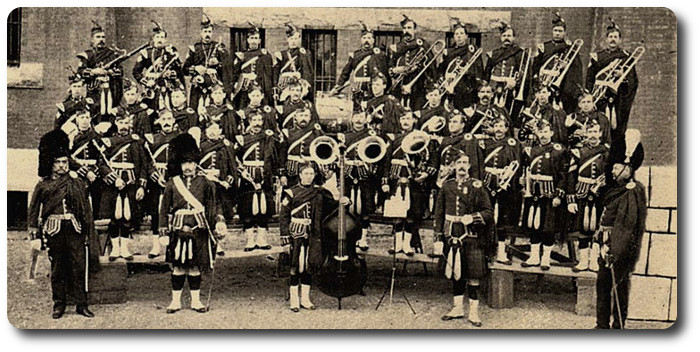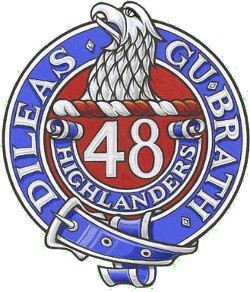Topic: Canadian Militia

Played in His Uniform
An Interesting Conflict Between Militia Act and Trade Unionism
The Montreal Gazette, 19 December 1900
 Toronto, December 18.—A case in which the Militia Act comes into conflict with trade unionism and the military is triumphant over the civil association is that of Parker against the Toronto Musical Protective Association, in which judgment was rendered today by Mr. Justice MacMahon. The plaintiff is a musician residing in Toronto, and an active militiaman, duly enrolled as a member of the 48th Highlanders, and also a member of defendant association, which is a body incorporated under the friendly societies' and insurance corporations acts. The plaintiff played in uniform with this regimental band by permission of the officers of the regiment at a concert given at Massey Hall, Toronto. He was charged with playing contrary to the by-laws of the association, with musicians who were not members, and was fined $2, and then dismissed from it for non-payment of the fine. The judge held that the amendment to the by-laws of the association, under which the plaintiff was fined, was invalid, because reasonable and in restrain of trade; that the amending by-law is also contrary to the Queen's regulations, to the Militia Act, and to the Canadian militia regulations and orders. The plaintiff, being a bandsman, is obliged to play at a duly sanctioned engagement will his band, no matter how many of the other bandsmen are not members of the association. Judgment for plaintiff with damages assessed at $20 for alleging that he was a deserter, $20 damages for wrongful dismissal and the costs of the action and also declaring that article (1), amending the by-law, and under which attempted dismissal rook place, is void; that the plaintiff's expulsion was illegal and granting injunction restraining defendants from interfering with plaintiff's privileges as a member. The judgment in effect means that the Militia Act overrides trade union obligations when they come into conflict.
Toronto, December 18.—A case in which the Militia Act comes into conflict with trade unionism and the military is triumphant over the civil association is that of Parker against the Toronto Musical Protective Association, in which judgment was rendered today by Mr. Justice MacMahon. The plaintiff is a musician residing in Toronto, and an active militiaman, duly enrolled as a member of the 48th Highlanders, and also a member of defendant association, which is a body incorporated under the friendly societies' and insurance corporations acts. The plaintiff played in uniform with this regimental band by permission of the officers of the regiment at a concert given at Massey Hall, Toronto. He was charged with playing contrary to the by-laws of the association, with musicians who were not members, and was fined $2, and then dismissed from it for non-payment of the fine. The judge held that the amendment to the by-laws of the association, under which the plaintiff was fined, was invalid, because reasonable and in restrain of trade; that the amending by-law is also contrary to the Queen's regulations, to the Militia Act, and to the Canadian militia regulations and orders. The plaintiff, being a bandsman, is obliged to play at a duly sanctioned engagement will his band, no matter how many of the other bandsmen are not members of the association. Judgment for plaintiff with damages assessed at $20 for alleging that he was a deserter, $20 damages for wrongful dismissal and the costs of the action and also declaring that article (1), amending the by-law, and under which attempted dismissal rook place, is void; that the plaintiff's expulsion was illegal and granting injunction restraining defendants from interfering with plaintiff's privileges as a member. The judgment in effect means that the Militia Act overrides trade union obligations when they come into conflict.

